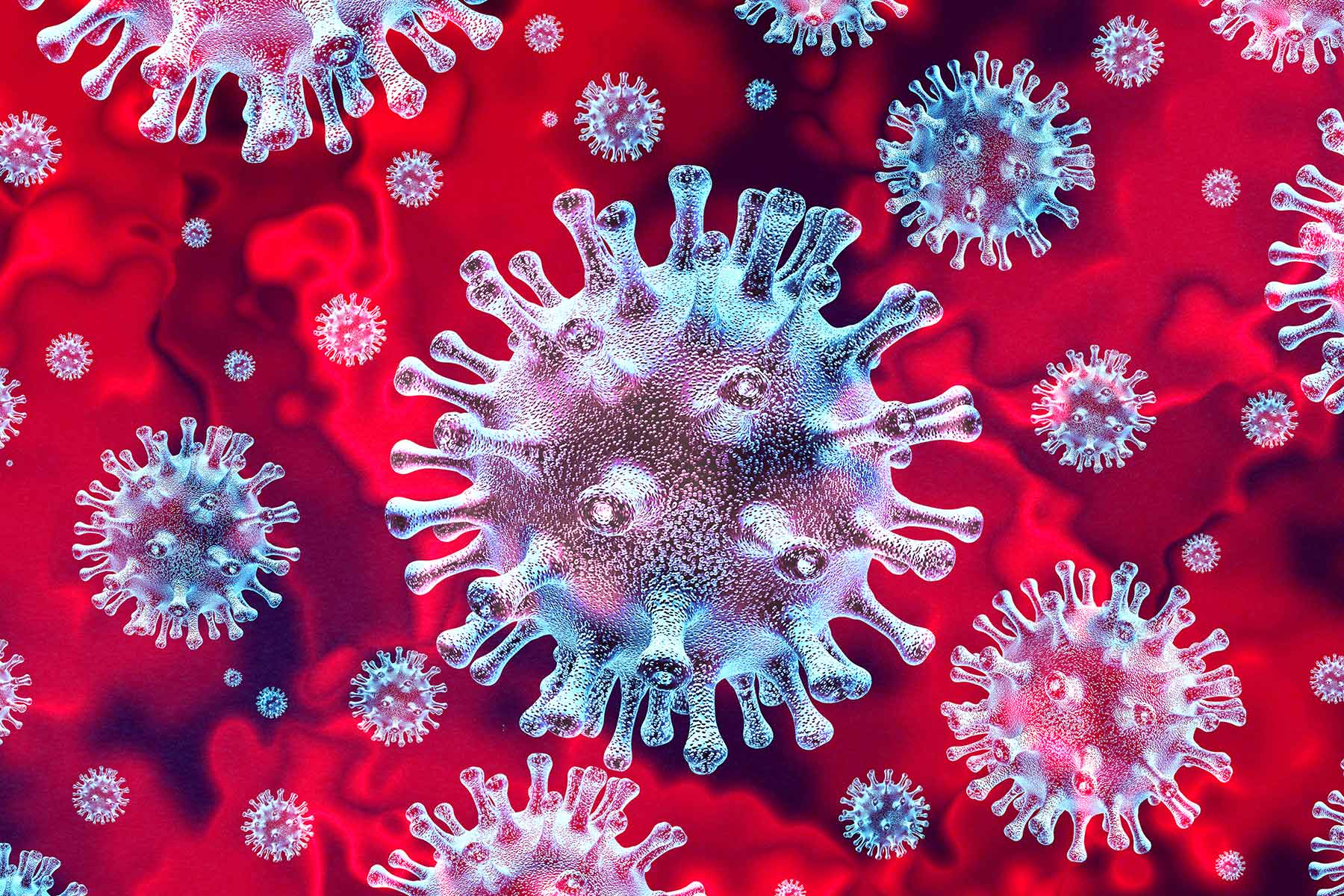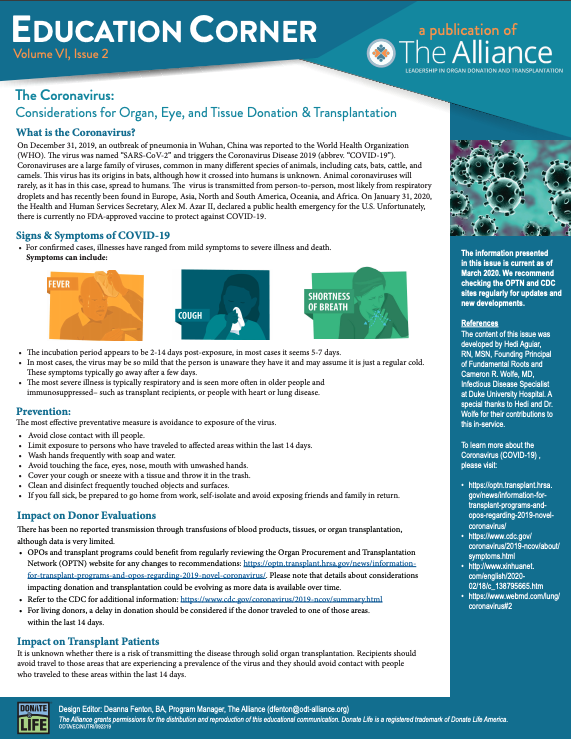What is the Coronavirus?
On December 31, 2019, an outbreak of pneumonia in Wuhan, China was reported to the World Health Organization (WHO). The virus was named “SARS-CoV-2” and triggers the Coronavirus Disease 2019 (abbrev. “COVID-19”). Coronaviruses are a large family of viruses, common in many different species of animals, including cats, bats, cattle, and camels. This virus has its origins in bats, although how it crossed into humans is unknown. Animal coronaviruses will rarely, as it has in this case, spread to humans. The virus is transmitted from person-to-person, most likely from respiratory droplets and has recently been found in Europe, Asia, North and South America, Oceania, and Africa. On January 31, 2020, the Health and Human Services Secretary, Alex M. Azar II, declared a public health emergency for the U.S. Unfortunately, there is currently no FDA-approved vaccine to protect against COVID-19.
Signs & Symptoms of COVID-19
- For confirmed cases, illnesses have ranged from mild symptoms to severe illness and death. Symptoms can include:

- The incubation period appears to be 2-14 days post-exposure, in most cases it seems 5-7 days.
- In most cases, the virus may be so mild that the person is unaware they have it and may assume it is just a regular cold. These symptoms typically go away after a few days.
- The most severe illness is typically respiratory and is seen more often in older people and immunosuppressed– such as transplant recipients, or people with heart or lung disease.
Prevention:
- Avoid close contact with ill people
- Limit exposure to persons who have traveled to affected areas within the last 14 days.
- Wash hands frequently with soap and water. • Avoid touching the face, eyes, nose, mouth with unwashed hands.
- Cover your cough or sneeze with a tissue and throw it in the trash.
- Clean and disinfect frequently touched objects and surfaces.
- If you fall sick, be prepared to go home from work, self-isolate and avoid exposing friends and family in return. There has been no reported transmission through transfusions of blood products, tissues, or organ transplantation, although data is very limited.
Impact on Donor Evaluations
There has been no reported transmission through transfusions of blood products, tissues, or organ transplantation, although data is very limited
- OPOs and transplant programs could benefit from regularly reviewing the Organ Procurement and Transplantation Network (OPTN) website for any changes to recommendations. Please note that details about considerations impacting donation and transplantation could be evolving as more data is available over time.
- Refer to the CDC for additional information
- For living donors, a delay in donation should be considered if the donor traveled to one of those areas within the last 14 days
Impact on Transplant Patients
It is unknown whether there is a risk of transmitting the disease through solid organ transplantation. Recipients should avoid travel to those areas that are experiencing a prevalence of the virus and they should avoid contact with people who traveled to these areas within the last 14 days.
The content of this issue was developed by Hedi Aguiar, RN, MSN, Founding Principal of Fundamental Roots and Cameron R. Wolfe, MD, Infectious Disease Specialist at Duke University Hospital. A special thanks to Hedi and Dr. Wolfe for their contributions to this in-service.






